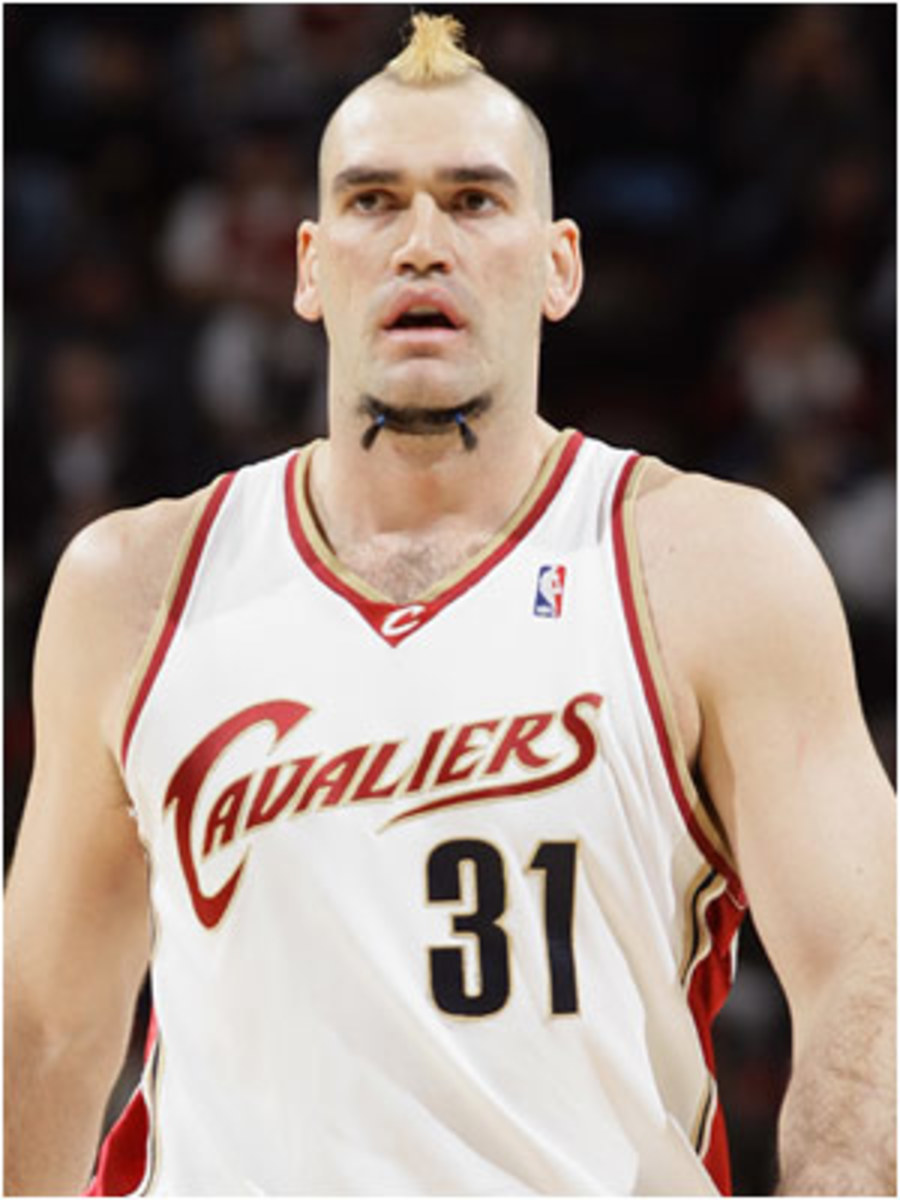Overvauled opinions


Scot Pollard is not a drug counselor. He's not even a camp counselor. So why do we put so much stock in his advice?
If you haven't heard, the Cavs center thought it would be funny to look into a TV camera during a game last week and say, "Hey kids, do drugs." So he's clearly not much of a comedian either. Maybe it's time to realize that his opinions on anything other than basketball don't matter any more than yours or mine.
Of course, Pollard is hardly the only athlete with an overvalued opinion. He just happens to be the most recent one to teach us that we should stop looking to professional athletes for insight on anything other than why they threw a particular pitch, how they read the defense, or which is the best strip club in Atlanta. Many pro athletes are highly intelligent. Some are well educated. All are experts in their craft. But none of them know as much about other things as we seem to think they do.
Still, Pete Rose tells us to put Mark McGwire in the Hall of Fame, and we take it seriously. "Don't penalize McGwire because you think other guys are taking steroids," Rose told Dan Patrick last week in the same interview in which he admitted to betting on the Reds every night. Asking Pete Rose for advice about the Hall of Fame is like...asking Pete Rose for advice on filing your taxes. He just doesn't have much experience with either one. Diplomacy is not his forte either, but we listen to what he says about that, too.
"I'm the best ambassador baseball has," he said in that same interview, as if continuing to say it will somehow make it true. If baseball can't find a better ambassador than a philandering tax cheat whose compulsive gambling and habitual lying have kept him out of the game, then an ambassador isn't going to be much help anyway. Besides, MLB's management has room for only one dishonest shill with bad hair, and that position's already been filled. Still, Rose insists he's up to the task. He told people at a ceremony the day before that now-famous interview that "they could send a hit man after me, and I would still be out there trying to sell baseball."
That must be a typo, because I'm pretty sure Pete meant to say he'd still be selling baseballs.
Rose and Pollard are hardly alone in being taken too seriously. Ron Artest is involved in brawls, reportedly starves his dog, gets arrested for domestic violence, and gets hired to write an advice column. Michael Vick can't even drink water without getting in trouble with airport security, and now he's recommending a wine to go with your appetizer. What's next, Jason Kidd as a marriage counselor? Carl Everett opening up a museum? Terrell Owens writing a children's book?
Athletes say stupid things all the time. And not because they're athletes --because they're human beings. We all say stupid things. But there aren't too many of us who have microphones and TV cameras or cell phone camcorders catching every single dumb thing we say and replaying it on SportsCenter and YouTube and "Sign of the Apocalypse" and Leno and Deadspin and the New York Post and some book called America's Dumbest Athletes. (Note to self: write a book called America's Dumbest Athletes.)
We ask these guys a lot of questions, and they're nice enough to answer most of them. When anyone does that much talking, something dumb is bound to come out from time to time. Especially when someone is asked to talk outside his area of expertise. We know this. And yet we still take their statements as gospel.
Thing is, most athletes don't even know very much about a lot of sports-related things, either. At least they don't know as much as we think they do. That's why, for example, the estimates from different players on how many of their colleagues take steroids vary so wildly. We've heard estimates from current and former players that range from five percent to 80 percent. Why the wide range? Because they don't have any idea what they're talking about. Sure, they're in a better position to guess than I am, but it's still just a guess. None of these guys are counting up the dopers and working out the math.
In fact, Redskins tackle Jon Jansen admitted as much back in September when he said that 15 to 20 percent of NFL players take HGH, only to back off that statement soon afterward. "What I meant by it was that it was a small number of players," he backpedaled. "Being a football player, I'm not real good at math."
We overvalue athletes' uninformed opinions on all sorts of things. We get DirecTV because Peyton Manning tells us to. We buy Buicks because Tiger Woods tells us to. OK, so we're still not buying Buicks. But when Joe DiMaggio starred in ads for Mr. Coffee in the 1970s, millions of people went out and bought Mr. Coffee machines as if hitting safely in 56 consecutive games demonstrates knowledge of small appliances.
If we didn't take these guys so seriously, then maybe we wouldn't have to worry that our kids might do drugs because some basketball player jokingly tells them to. This is not to say that athletes are a bunch of idiots. Certainly some of them are, but most are highly talented but otherwise ordinary people whose opinions on drugs, diplomacy, and which car to drive shouldn't carry any more weight than mine, or yours, or anyone else's. The only advice I want from Pete Rose is who to pick in the third race at Saratoga.
Now if you'll excuse me, I have an appointment with my financial planner, Pacman Jones.
